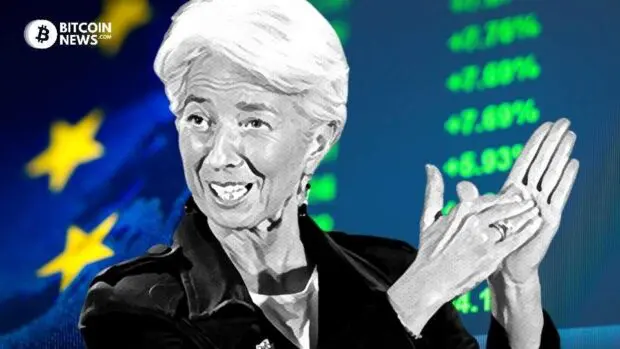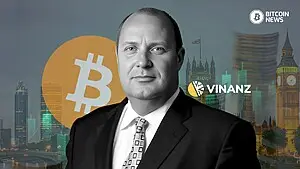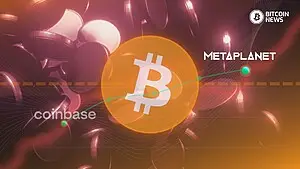The European Central Bank states that it is going to implement the highest increase in borrowing costs in 22 years, while also indicating the possibility of further hikes.
The announcement that was made on Thursday, states this action to be a part of the ECB’s ongoing efforts to combat persistently high inflation, despite a weakening euro zone economy.
The central bank raises its key interest rate, which banks use to securely deposit funds, for the 8th consecutive time, reaching a 22-year peak of 3.5%, an increment of 25 basis points.
Following the decision, ECB President Christine Lagarde stated during a press conference that the key interest rates of the ECB will be adjusted to levels that are adequately restrictive, in order to achieve a timely resurgence of inflation towards the medium-term target of 2%.
Read more on the subject : How Bitcoin protects against Inflation and Currency Devaluation
Furthermore, Lagarde emphasized that these rates will be maintained at those levels for as long as it is necessary to accomplish this objective.
The central bank governing the 20 euro-sharing countries also indicated that it anticipates inflation to remain above the targeted 2% level until 2025. Additionally, the bank hinted at the possibility of further interest rate increases in the upcoming months.
Furthermore, the ECB raised its projections for “core” inflation, which excludes the volatile categories of energy and food. These are key areas that the ECB closely monitors.
Lagarde highlighted the growing significance of wage hikes and companies raising prices to bolster their profits as driving forces behind inflation. She stated that although inflation has shown signs of decline, it is still expected to remain persistently high for an extended period of time.
Read more on the subject : Swedbank Strategist Sounds Alarm Predicting ‘Vicious Spiral’ With More Bank Failures Ahead
In the euro zone, inflation has been gradually moderating due to lower energy prices and the most significant interest rate hikes in the ECB’s 25-year history. However, the current inflation rate of 6.1% remains unacceptably high for the ECB, with underlying price growth only just beginning to slow down.
ECB President Lagarde expressed the likelihood of continuing rate increases in July unless there is a significant change in the current scenario. She emphasized that there are no plans to pause the tightening cycle at the moment.










